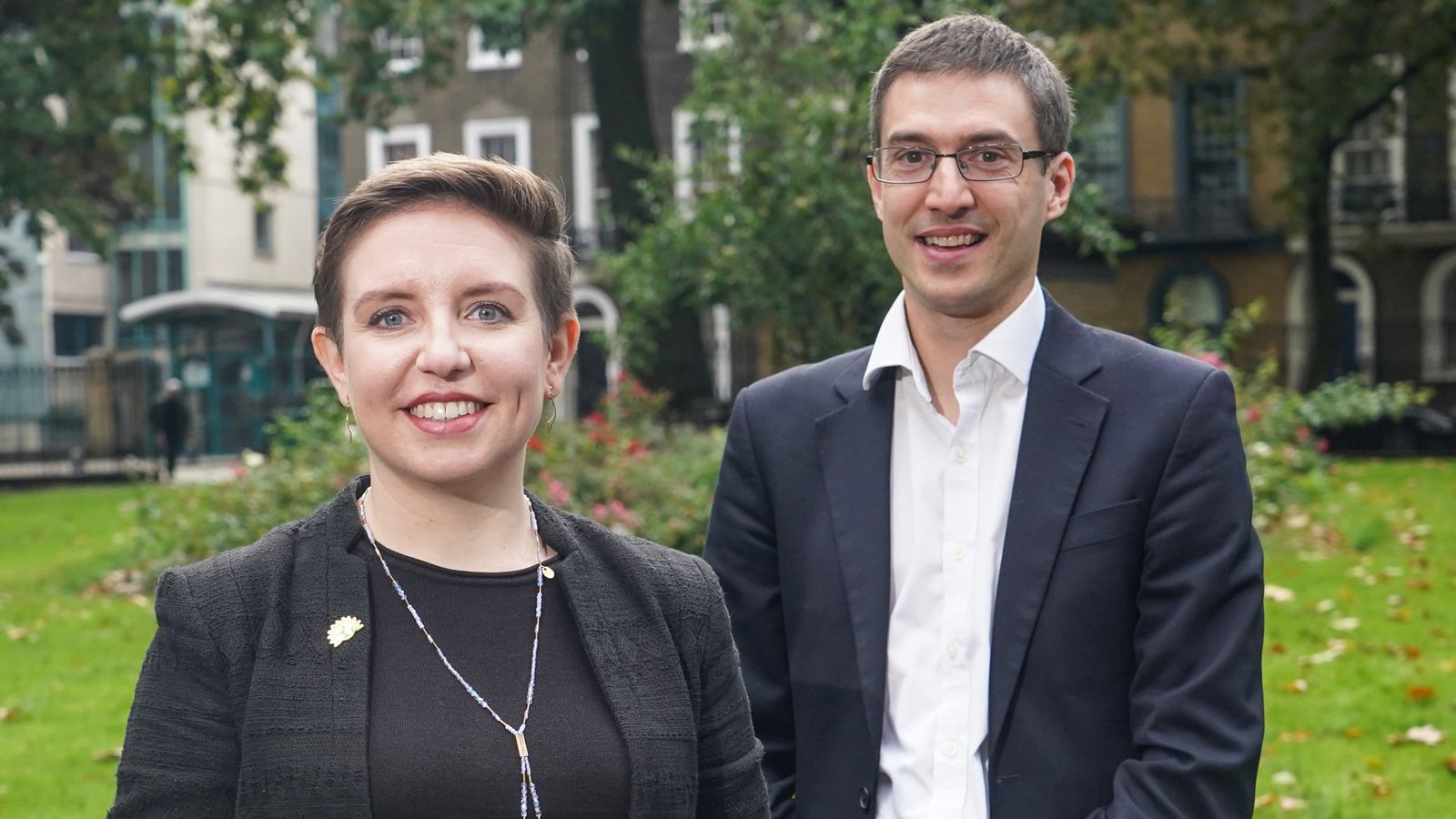With the sun shining on the Brighton seafront, the Green Party – meeting for its conference here – is in a bullish mood.
This is their heartland, won by Caroline Lucas from Labour in 2010 and which they have held onto ever since, increasing her majority to 20,000.
But she remains their sole MP – along with two members of the House of Lords – and she’s standing down at the next election.
Politics latest: ‘We’re the party of change’, Starmer says after by-election victory
The Green Party’s co-leaders Adrian Ramsay and Carla Denyer are not well-known figures, but they have big ambitions – claiming they can quadruple their number to four MPs next year.
Both of them hope to pick up seats, against Labour in Bristol Central where Denyer is standing, and against the Conservatives in Waveney in Suffolk and South Herefordshire.
But these seats, or the ones that preceded the boundary changes, all have big majorities for Labour and the Conservatives – making even that modest aim a long shot.
The first-past-the-post system makes any breakthrough for a smaller party difficult. So, will another prediction of a Green surge turn out to be a damp squib?
Winning local elections is where the battle starts
The party believe this could be their moment for several reasons. The first is big gains at local elections – a lot of groundwork over the past decade came to fruition in May when the party picked up a surprise 241 councillors.
In 2001, the party had 45 councillors, they now have more than 900. But winning MPs is obviously much harder.
The Greens won 1.1 million votes at the 2015 elections but still just one MP. UKIP won 3.8 million and only got one MP, too.
But winning local councils is where the battle starts – as the Lib Dems showed in the 1980s and 1990s before winning dozens of seats in Westminster.
The second reason for Green optimism is that climate policies are surging up the political agenda.
Market research company Ipsos Mori recently found that 77% of voters say they are concerned about climate change – although that doesn’t always translate into support for particular policies.
When climate change and the ozone layer dominated public debate in the late 1980s, the Greens won 15% of the votes at the European elections.
But their support collapsed soon afterwards.
Read more from Sky News:
Labour ‘party of change’, says Sir Keir Starmer
Top Just Stop Oil donor says more protests are ‘pointless’
Rishi Sunak teams up with Italian PM to call for more action on illegal migration
Now they hope climate change is a settled part of public debate, and they can keep campaigning on it.
They also believe they can pick up votes from Labour and the Conservatives, with some supporters from both parties feeling they are selling out the environment and nature.
Co-leader Adrian Ramsay told the conference: “I’m sure like me, many of you will read the headlines each morning, watch the news each night and think: how do the Conservatives keep finding new ways to break Britain?
“After 13 years, it’s actually quite a feat! But no matter what new climate crime or damaging policy the government comes up with, Labour somehow manages to disappoint us just as much.
“Time after time, they come out swinging at the Conservatives, and then when asked – does that mean you’ll reverse these decisions if you make it into government… radio silence.”
The Greens will pick up votes to the left of Labour
James Dennison, an expert in Green Party politics at the University of East Anglia, told Sky News the party will pick up votes to the left of Labour.
“Starmer has moved the Labour Party in a more centrist direction, and the Lib Dems who used to present themselves as to the left of Labour, were discredited with the left by the coalition,” he said.
But he said voters were also smarter about voting tactically: “The Greens have put their slabs in the ground, in areas Labour and the Lib Dems had written off and said this is ours now.”
Be the first to get Breaking News
Install the Sky News app for free
One of these was mid-Suffolk, where the Greens seized control of a council for the first time in their history. But Conservative voters are likely to be turned off by their other policies.
The Greens are certainly left-wing – they propose a tax on the wealthiest 1% to fund home insulation, rent controls and the nationalisation of water companies.
Their record in local government is also mixed – their support collapsed on Brighton Council which they used to run as a minority, and voters turned back to Labour.
If they do manage more than one seat at Westminster, their best hope is that a future Labour government need their votes, and they can push green issues onto a bigger party’s agenda.










